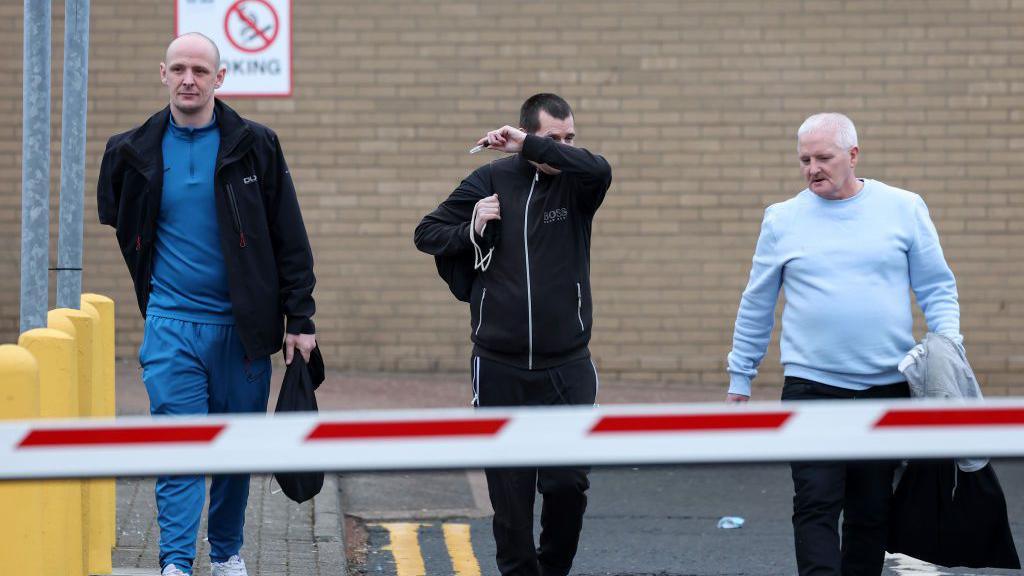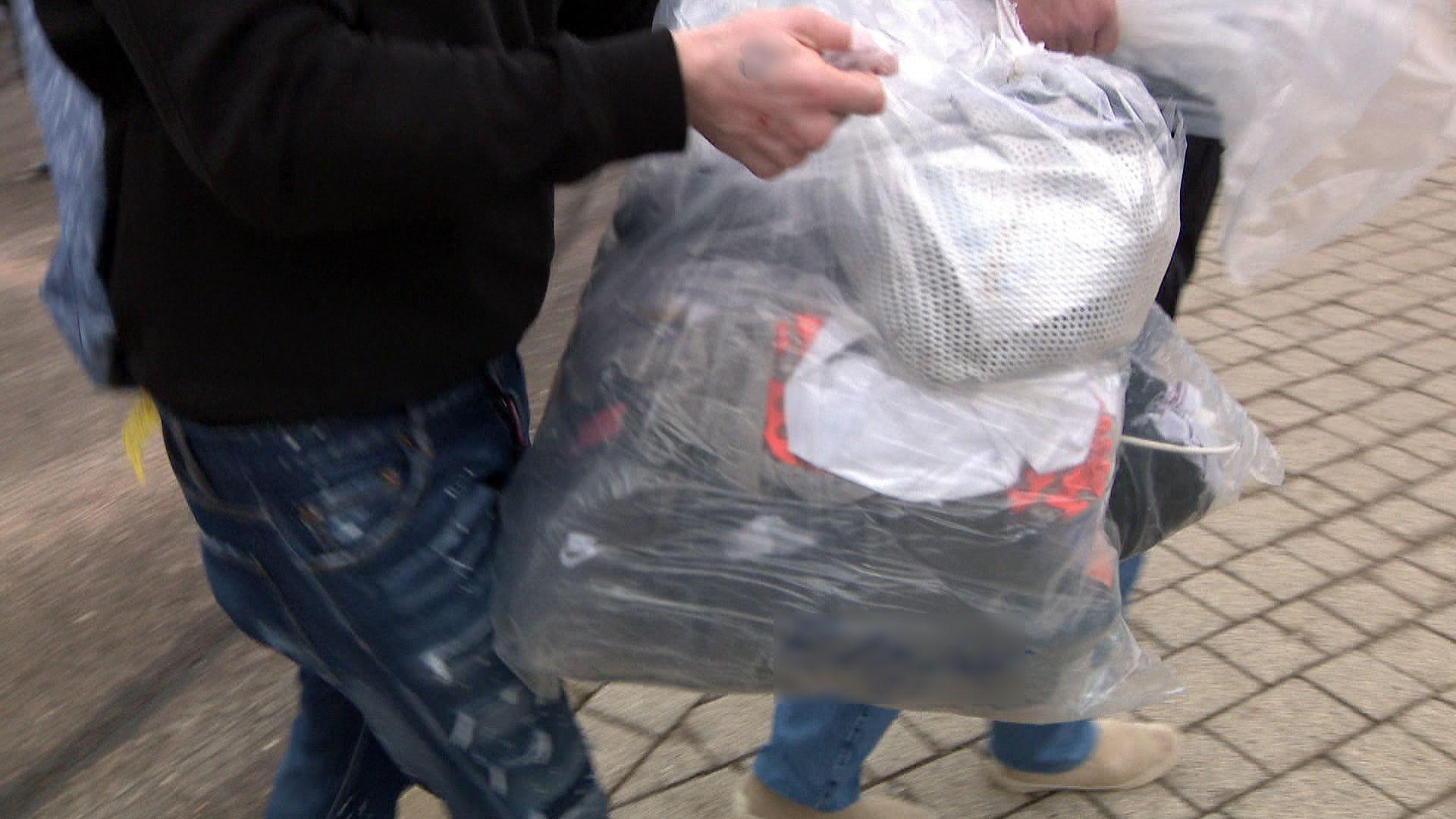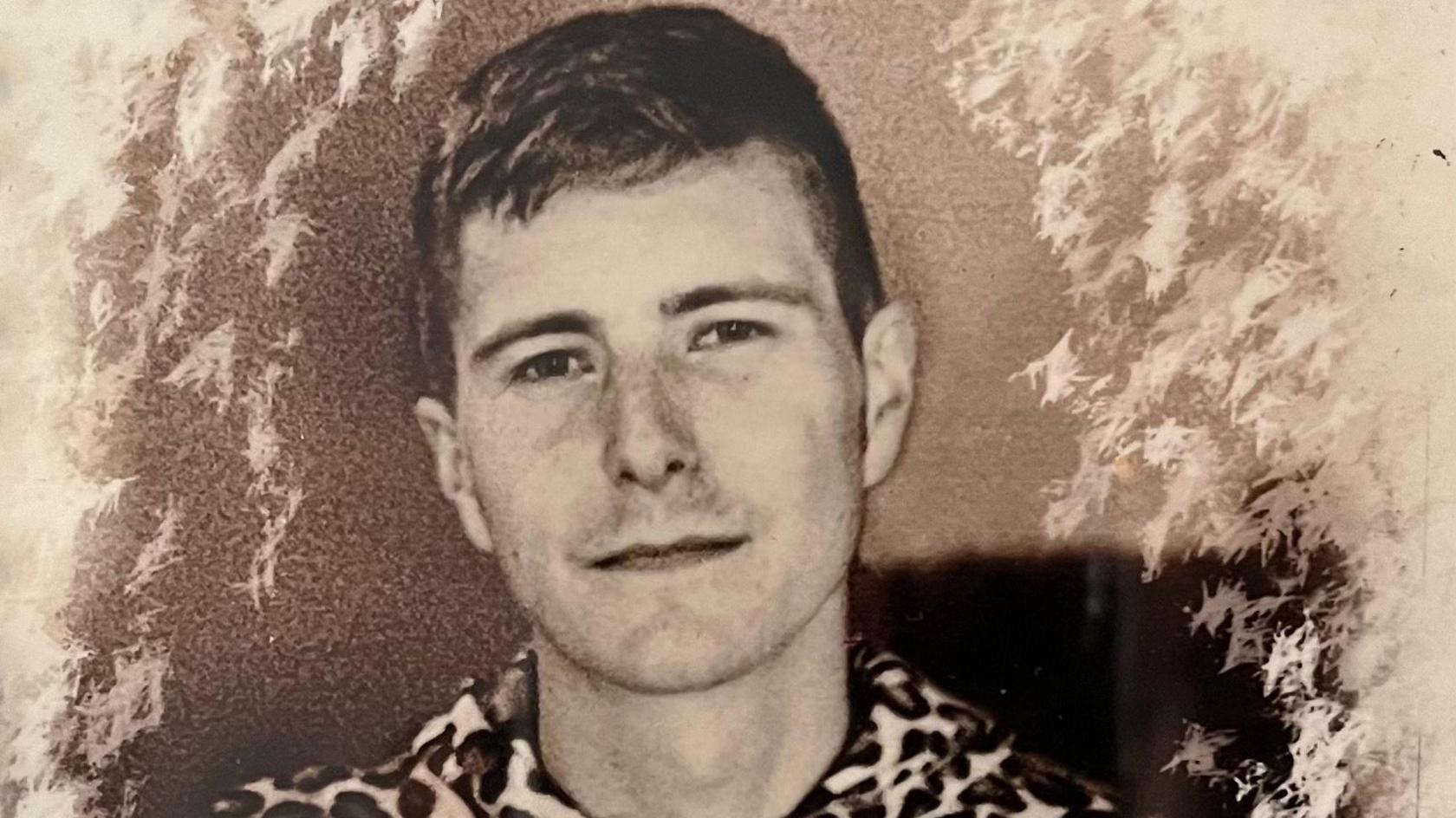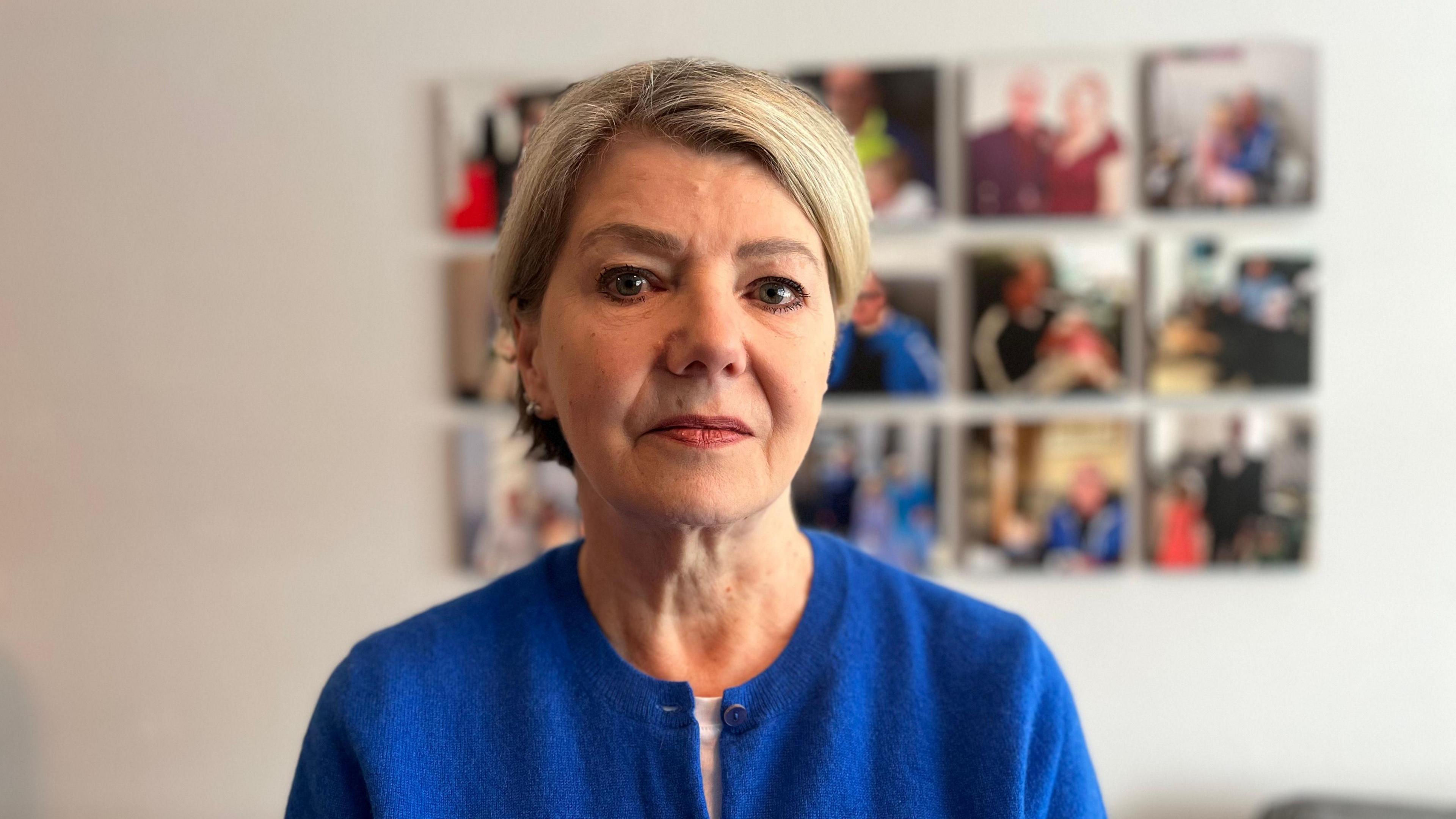Early release of hundreds of prisoners begins
Early release of hundreds of prisoners begins
- Published
The first of up to 390 prisoners are being released early in the latest attempt to ease overcrowding in Scotland's jails.
Emergency legislation was passed last year which allows eligible inmates sentenced to less than four years to be freed after 40% of their term, rather than 50%.
They will be released in three tranches over a six-week period. Prisoners serving sentences for domestic abuse or sexual offences are excluded.
Justice Secretary Angela Constance said the prison population was "too high" and the releases were necessary to ensure there was room for prisoners who posed the greatest risk and to support rehabilitation to reduce offending.
"If we want safer communities, we must also have safer prisons," she told BBC's Good Morning Scotland.
Ms Constance accepted that violent criminals made up "not an insignificant" proportion of those serving short-term sentences but she could not say how many such offenders would be freed early.
At least eight inmates were released from Scotland's largest prison HMP Barlinnie earlier. Some got into waiting vehicles while others walked down the road together from the Glasgow prison.

Prisoners left HMP Barlinnie early on Tuesday as part of a staggered release
One man said he had been released days early from a nine month sentence. He said he was "over the moon" to be out and that Barlinnie was "over full".
"You get two people in one cell, it's like a bus stop," he told BBC Scotland News.
"It's getting too full up with all the people coming in so they have to let people out."
At HMP Edinburgh, also known as Saughton Prison, an inmate called Ian was released three weeks early from a two-year sentence for robbery and assault.
"I'm happy to be out," he said. "I've been in for too long. I'm going to go sort my life out."

Ian left HMP Edinburgh carrying his belongings in a plastic bag
When asked about conditions inside the prison, Ian said: "It's not too bad, to be honest. Depends on who you are."
At the end of last week, there were 8,344 inmates in Scotland's prisons – above the target operating capacity of 8,007.
Last summer 477 prisoners were released early in an emergency attempt to ease overcrowding.
But 61 ended up back in custody before their original planned release date, according to SPS data, and within two months the overall prison population had again risen above the level at which the releases began.
Why are there so many people in Scotland's jails?
- Published11 October 2024
Prison boss: I'd struggle to survive my own jail
- Published11 February
Victims being ignored by early release, says charity
- Published14 February
The latest releases, said Ms Constance, "will give an immediate and a sustained reduction" in the prison population of around 5%.
She also said the Scottish government was investing in community justice and was taking steps to address the "very high" numbers of prisoners being held on remand as a result of backlogs in the courts since Covid.
More than 1,700 prisoners were released early in England and Wales last autumn as part of a similar attempt by the UK government to ease overcrowding.
Release 'traumatising' for victims
The charity Victim Support Scotland (VSS) and the Scottish Prison Service (SPS) have jointly urged victims of crime to sign up for a scheme to be notified, external if they will be affected by a prisoner release.
Both organisations say only a small percentage of victims have joined, and VSS is calling for a more proactive approach than the current system which relies on victims to sign up.
Kate Wallace, chief executive of VSS, said some victims were "worried for their own and their family's safety when someone's being released from prison."
Early releases had also raised anxiety amongst victims of older crimes, she said, sometimes causing renewed trauma.

Sam Johnston was 22 when he was murdered
Lynn Burns' son Sam Johnston was 22 when he was stabbed to death at a house party in Saltcoats, North Ayrshire, in 2013.
Stuart McCulloch was convicted of Mr Johnston's murder and sentenced to 13 years and five months in jail. His co-accused Allan Carey was convicted of culpable homicide and jailed for three years.
Ms Burns said she only found out that Carey had been released early after he arrived back in their home town.
"As a victim," she said, "all we want is to feel safe in our communities."
Carey's release was "completely traumatising," she explained, adding those feelings had resurfaced on hearing about the latest releases.
The notorious Barlinnie prison in Glasgow is at the forefront of overcrowding problems.
The Victorian jail, which opened in the 1880s, is now at 140% capacity with nearly 1,400 prisoners when it was designed for just 987.
The governor, Michael Stoney, has even admitted he would "struggle" to cope as an inmate there.
Scotcast: Life Inside our Packed Prisons
Barlinnie governor Michael Stoney on what it's like inside Scotland’s biggest jail
He described Scotland's largest jail as a "pressure cooker" and said the new early release laws were necessary for staff and inmates although he accepted that some of those released early would "inevitably return" as part of a cycle of re-offending.
"In this prison we do the best we can. We have a real focus on those that are getting released under this scheme," he said.
"You nudge people forward in terms of life development," said Mr Stoney.
A controversial replacement for Barlinnie, HMP Glasgow, is being built at a cost of almost £1bn and due to open in 2028.
Former prisoner Jordan Robertson is building a new life as an artist after a series of short-term sentences for gang-related crime.
He knows well the impact of overcrowding.
"I've seen the deterioration of the system, because from the first time I was in to the last time I've seen it drastically get worse," he told BBC Scotland News.
"You're seeing people basically get warehoused because the courts can't deal with the demand."

Jordan Robertson served a series of short-term sentences for gang-related crime
Mr Robertson described the early release scheme as a "a very short term measure" to solve overcrowding rather than tackle reoffending.
He said it was a "quick fix" and rehabilitation was the "long game".
Critics of the early release scheme, on both the left and right of politics, say it is an indictment of the Scottish government's approach to criminal justice.
The Scottish Conservatives' justice spokesman Liam Kerr said overcrowding was "a crisis entirely of the SNP's own making," pointing to their "catastrophic failure to build new prisons on time and on budget".
Justice reform campaigners are also critical.
It is now more than 16 years since the report of the Scottish Prisons Commission, chaired by former Labour first minister Henry McLeish, urged a fresh approach.
It argued that while "Scotland imprisons more of its people than many other places in Europe," high levels of incarceration had done little to tackle "real problems with violence, alcohol and drugs".

Lynn Burns' son was murdered
Ms Burns, whose son was murdered, now helps other victims going through the justice system and she agrees fundamental change is needed.
On the one hand, she said, 40% of a sentence might not be enough time to rehabilitate a prisoner.
On the other, some prisoners were serving prison terms who should have been sentenced to alternatives.
She said some people should be in prison for the safety of the public, but there were other examples in the wider community where more could be done to rehabilitate those who had committed crimes.
Ms Burns continued: "How we punish and rehabilitate people should be an issue, and how we care for victims should be as big a priority. And I don't believe it always is.
"What we've been doing is not working."
A Scottish Prison Service spokesman said: "We have been managing an extremely high and complex prison population for more than a year, putting considerable pressure on all those living and working in our establishments."
He said the prison service welcomed the early release policy, adding that all actions would be considered to "deliver a manageable population" for prisons.
The spokesman said this would allow staff to support prisoners in their rehabilitation and reduce the risk of reoffending.